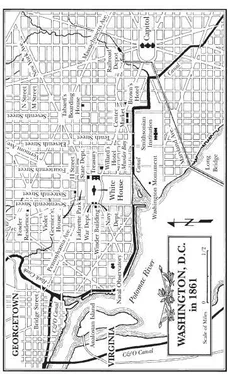John Miller - The First Assassin
Здесь есть возможность читать онлайн «John Miller - The First Assassin» весь текст электронной книги совершенно бесплатно (целиком полную версию без сокращений). В некоторых случаях можно слушать аудио, скачать через торрент в формате fb2 и присутствует краткое содержание. Жанр: Исторический детектив, на английском языке. Описание произведения, (предисловие) а так же отзывы посетителей доступны на портале библиотеки ЛибКат.
- Название:The First Assassin
- Автор:
- Жанр:
- Год:неизвестен
- ISBN:нет данных
- Рейтинг книги:3 / 5. Голосов: 1
-
Избранное:Добавить в избранное
- Отзывы:
-
Ваша оценка:
- 60
- 1
- 2
- 3
- 4
- 5
The First Assassin: краткое содержание, описание и аннотация
Предлагаем к чтению аннотацию, описание, краткое содержание или предисловие (зависит от того, что написал сам автор книги «The First Assassin»). Если вы не нашли необходимую информацию о книге — напишите в комментариях, мы постараемся отыскать её.
The First Assassin — читать онлайн бесплатно полную книгу (весь текст) целиком
Ниже представлен текст книги, разбитый по страницам. Система сохранения места последней прочитанной страницы, позволяет с удобством читать онлайн бесплатно книгу «The First Assassin», без необходимости каждый раз заново искать на чём Вы остановились. Поставьте закладку, и сможете в любой момент перейти на страницу, на которой закончили чтение.
Интервал:
Закладка:
“Let us proceed with the business at hand,” said Scott.
“We all know what happened in Baltimore on Friday, but today we have with us Colonel Edward F. Jones of the Sixth Massachusetts. His men are bunking in the Senate. He will give us a full report of what transpired.”
A lanky colonel stood. He described arriving in Baltimore by train and drawing a crowd as his men marched across the city. At first, agitators shouted insults. Then they began hurling bricks and stones. The troops kept their composure but grew aggravated. Finally, a shot went off-almost certainly from the mob and possibly from a musket that was stolen from one of the soldiers after he was hit in the face with a rock. “I have four dead soldiers and more than thirty injured to prove that our harassers were armed and willing to open fire,” said Jones. “We had no choice but to fire back.” They fought their way to the depot, boarded a train, and made it to Washington.
Seward stood up. “You fought bravely and well, Colonel,” he said. “On behalf of the government, let me say that we are all grateful for your sacrifice.”
Rook did everything he could to keep from rolling his eyes. Seward might be a cabinet secretary, but at heart he was a politician. Like so many other politicians, he enjoyed hearing himself speak and ingratiating himself to his listeners. He looked at soldiers, but he did not see warriors. He saw voters. Even so, Rook began to think that Seward’s presence today might prove useful.
“We are under siege and isolated, gentlemen,” said Scott.
“We are all that stands between the preservation of the Union and its ruin. Yet we do not possess an adequate force to defend Washington from an attack of any significance.”
“Will reinforcements come?” asked Seward.
“The New York Seventh is supposedly on the way. It cannot get here soon enough.”
Scott rattled off a series of orders. He told the officers already in charge of organizing armed citizen groups and marshaling provisions to redouble their efforts. He demanded stronger picket lines around the perimeter of the city and better intelligence on military activity in Maryland and Virginia. He insisted that sandbags be placed around the Treasury Department-if war came to the streets of Washington, it would become a military headquarters and a refuge for the president. The general reviewed evacuation procedures, including a scheme to escort the president from Washington if the city’s capture was imminent. He wanted a plan for everything and gave everybody something to do. Rook was responsible for monitoring the bridges and locating facilities for additional soldiers, should they ever come.
“Are there any questions?” asked Scott.
When nobody had any, Rook spoke. “General,” he said. “I might make a comment.”
“Yes, Colonel?”
“Last Friday’s incident demonstrates the wisdom of President Lincoln’s decision to pass through Baltimore in the middle of the night rather than risk the fury of a mob. He has been greatly criticized for it, even by his friends and allies. It is said that he regrets having done it. Now we have fatal evidence showing that he was sensible to have been cautious.”
Seward leaned forward in his chair, which Rook viewed as an encouraging sign. Perhaps the secretary’s presence would force Scott to make a concession.
“We also have a better understanding of the enemy’s level of commitment and resourcefulness-and the knowledge that we have perhaps underestimated it,” continued Rook. “We’re responding effectively to the external threat. What about the internal threat? We know this city is full of secessionists-”
Scott interrupted. “What are you driving at, Colonel?”
“We can surround the Treasury with a wall of sandbags soaring above our heads, and it won’t do any good if a handful of secessionist vigilantes storm the president’s mansion. At the very least, we must improve our surveillance of likely instigators.”
A few heads nodded in agreement. An equal number did not move at all. Colonel Locke scoffed. Seward narrowed his eyes.
“I thought we had already discussed this matter,” said Scott. “Our focus now is on military operations. Sneaking and snooping won’t do us any good when Lee comes marching into northern Virginia at the head of an army.”
Seward raised his hand, stopping Scott’s commentary. “How serious is this problem, Colonel?”
“I would definitely call it serious-and made more so by a failure to recognize its potential. We just learned a painful lesson in Baltimore about not appreciating the lengths to which some people will go in opposing our aims. We must avoid making the same mistake here.”
Scott could not restrain himself any longer. “Mr. Secretary, you must understand that this colonel”-he emphasized the rank, as if to show it compared poorly against his own-“is making an old argument. We’ve gone over this many times before, and still he persists. Frankly, Colonel, it is beginning to smack of insubordination-and your desperate attempt to show off in front of the secretary here is embarrassing to me and all the other officers sitting around this table. You are now in charge of sandbagging the Treasury Department. You will devote yourself to this project exclusively. Others will assume your previous responsibilities.”
The meeting went on for another half hour. The only part Rook would remember was how Locke smirked and Seward stared for the rest of it.
THIRTEEN
MONDAY, APRIL 22, 1861
Portia opened her eyes to a small room she did not recognize. Light seeped in from a half-closed doorway, revealing white walls, a low ceiling, and not much else. She was lying on a hard bed. It made her wonder where her own bed was and why she was not in it. The answers did not come quickly to her groggy mind.
She remembered lumbering down a city street in Charleston. The need to rest her aching feet overcame her every block or two. Between her hampered gait and the frequent stops, it had taken half the night.
The street finally ended where the waves lapped against a seawall. When she turned around to look at the way she had come, Portia recognized that she was in the Battery. Water bounded it on two sides. Houses lined the rest of the park. They were big homes with white columns and cast-iron balconies. Packing them together so tightly made them look smaller than they really were, but Portia knew they sprawled on the inside. Most were three stories high. The Bennett home was on the opposite side, its ground floor lit by gaslight and visible through the trees. Nelly lived next door.
It was too late to knock, not that she would have tried it, even in daylight. What if Nelly had left for a plantation? The thought sent a shiver through Portia. Nelly was supposed to spend all her time in Charleston. But things could have changed. If she was gone, Portia did not know what she would do.
No lights shone through the mansion’s windows. Portia entered an alley. There was a single door in the rear of Nelly’s house. She thought about trying the handle. Instead, she sat down and rubbed her feet. The ache receded after a few minutes. Portia was not sure what to do next. It was easy to do nothing at all. She was exhausted. Her eyes began to droop. She fought to keep them open but felt herself losing the battle. Part of her actually wanted to lose it. A comforting blackness washed over her.
That was the last thing she remembered before she woke. Suddenly, a heavyset woman walked through the door. Even from the dim glow from the hallway, Portia recognized Nelly.
“You’re awake,” said Nelly. She reached for a damp rag.
“Lemme wipe this grime off your face, child. It looks like you ain’t been clean in days.” She rubbed lightly at first, then dipped the rag into a bucket by the side of the bed and scrubbed a bit harder.
Читать дальшеИнтервал:
Закладка:
Похожие книги на «The First Assassin»
Представляем Вашему вниманию похожие книги на «The First Assassin» списком для выбора. Мы отобрали схожую по названию и смыслу литературу в надежде предоставить читателям больше вариантов отыскать новые, интересные, ещё непрочитанные произведения.
Обсуждение, отзывы о книге «The First Assassin» и просто собственные мнения читателей. Оставьте ваши комментарии, напишите, что Вы думаете о произведении, его смысле или главных героях. Укажите что конкретно понравилось, а что нет, и почему Вы так считаете.












